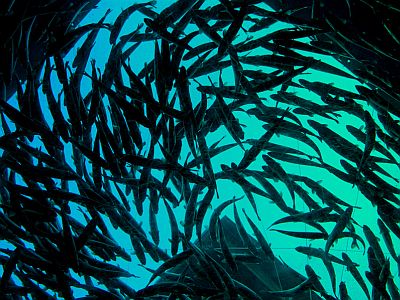How will Trump tariffs affect Americans' food bills?

On April 2, 2025, US President Donald Trump announced that he would impose a 10% tariff on all imports from around the world, and then impose 'reciprocal tariffs' that would add different tax rates to each country or region. Axios, an overseas media outlet, has
Trump tariffs could cause coffee, shrimp, other foods to soar in price
https://www.axios.com/2025/04/03/trump-tariffs-food-prices-coffee

'I will soon sign a historic executive order to implement reciprocal tariffs with countries around the world. This means we will do to each other what they do to us. It couldn't be simpler,' Trump said, indicating his intention to introduce 'reciprocal tariffs' that would raise tariffs in the United States based on the tariffs and non-tariff barriers of trading partners. Under the reciprocal tariffs, Japan would be subject to a 24% tariff.
Estimates from the Yale Budget Institute, which looked at the new tariffs, suggest that the reciprocal tariffs, on top of other taxes the White House has already imposed on imports, could increase fresh food prices by 4 percent and overall food prices
However, it has been pointed out that prices of some foods may rise further.
In the United States, many global coffee shop chains such as Starbucks and Tully's Coffee have been born, and it has been reported that more than 70% of adults drink coffee every week , making it a common drink for Americans. However, coffee beans are not grown in the United States except in Hawaii and Puerto Rico, and 99% of coffee is imported from overseas countries such as Brazil and Colombia. Therefore, a price increase due to the introduction of the tariffs is inevitable.

In addition, the United States relies on imports from Ecuador, India, Indonesia, Vietnam, etc. for more than 94% of the shrimp distributed domestically. Until now, no tariffs were imposed on shrimp imports, but with the introduction of the new tariffs, tariffs of 10% to a maximum of 46% will be imposed on shrimp imported from these countries.
'Seafood, including shrimp, will be hit hard by these tariffs,' said Ed Glaesser, trade director at the Progressive Policy Institute, a public policy think tank. Meanwhile, John Williams, executive director of the Southern Shrimp Alliance, a fishing association, said, 'Until now, the U.S. government has outsourced our food supply to companies engaged in practices that would never be acceptable on American soil. We are grateful for the Trump Administration's action, which will preserve American jobs, food security, and our commitment to ethical production.'

Hamburgers, America's national dish, are also at risk of a price hike. 'Australian beef is popular with many American fast food chains because it is low in fat and can be combined with high-fat American beef to produce hamburgers with the ideal fat content,' said one Australian farmer. 'The additional costs of the tariffs imposed by the Trump administration will be passed on to American consumers in the form of price hikes.'
In response to the tariffs, Australian Trade Minister Don Farrell warned, 'The majority of Australian beef exports to the US go to fast food giant McDonald's, so new tariffs will inevitably increase the price Americans pay for a cheeseburger or a Big Mac.' McDonald's has not commented on the tariffs.
Related Posts:
in Food, Posted by log1r_ut







